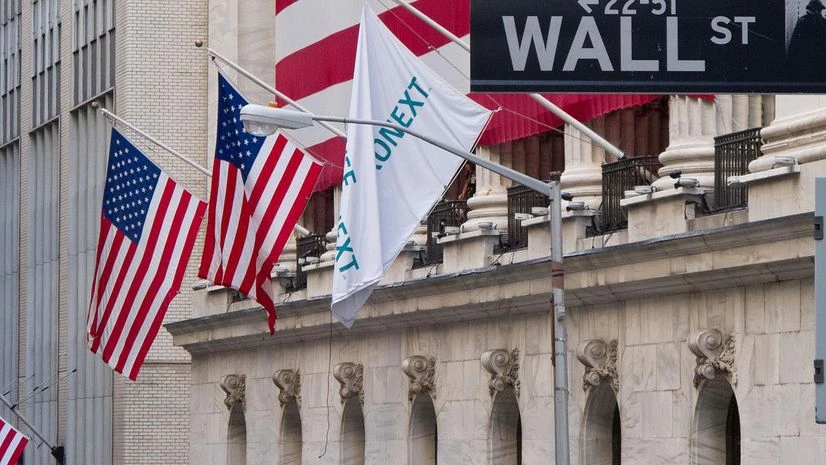Stocks are holding relatively steady Tuesday, as Wall Street continues to find more calm following its tumultuous swings in March.
The S&P 500 was virtually unchanged in early trading. The Dow Jones Industrial Average was edging down by 44 points, or 0.1 per cent, at 33,556, as of 9:50 a.m. Eastern time, while the Nasdaq composite was 0.1 per cent lower.
Both the stock and bond markets have been steadying after swerving sharply through the first three months of the year. Many big questions still weigh on Wall Street, but the worst fears driven by the second- and third-largest US bank failures in history have abated following forceful actions by regulators around the world.
Investors are still split on whether the US economy will fall into a recession and how badly profits for companies are set to fall. The biggest question remains what the Federal Reserve will do next with interest rates after hiking them furiously over the last year to get high inflation under control.
A report scheduled for later in the morning could offer the Fed more guidance on whether to raise rates again at its next meeting in May or to hold steady for the first time in more than a year. The report will show how many job openings employers advertised across the country in February.
Also Read
Fed officials say such numbers are important because a softening there could take some pressure off inflation, which has been slowing but is still too high. Economists are expecting to see a slight slowdown in the number of job openings.
Higher interest rates can undercut inflation by slowing the economy, but they raise the risk of a recession. They also hurt prices for stocks, bonds and other investments.
Tuesday's will be the first of three reports on the US jobs market this week. On Thursday will come the weekly report showing how many workers applied for unemployment benefits. And on Friday will come the more important monthly update on how many jobs were created across the country.
Some relatively encouraging data on inflation came in from other parts of the world Tuesday. In Europe, a survey by the European Central Bank showed expectations for inflation in the coming year is falling among consumers in the region. That's key because lower expectations can help the economy avoid a vicious cycle where inflation keeps building momentum.
A separate report also showed inflation at the wholesale level in the region slowed by more in February than economists expected.
In Australia, the country's central bank kept its key interest rate unchanged at 3.60 per cent. It said it wanted some time to see how its past hikes to interest rates are working through the system.
While Australia's economy is much smaller than that of the US or European Union, its central bank and that of New Zealand tend to set the tone for monetary policy cycles, Ipek Ozkardeskaya of Swissquote.com said in a commentary.
In South Korea, the consumer inflation rate fell to a lower-than-expected 4.2 per cent in March from a year earlier from 4.8 per cent the month before. That has raised expectations that the central bank will keep its key interest rate at 3.5 per cent when it meets next week.
In the US, traders are split on whether the Fed will hold steady or raise rates again at its next meeting in May. But there seems to be more confidence that the Fed will have to cut rates later this year.
That has helped to buoy stocks, particularly technology and other high-growth companies, because rate cuts tend to act like steroids for markets. But the Fed has been consistent in saying it does not expect any rate cuts this year.
Critics also are sceptical, saying inflation still remains too high for the Fed's liking. And any cut in rates would likely come only if the economy were in much weaker shape, something that could torpedo stocks too.
In the bond market, the yield on the 10-year Treasury rose to 3.46 per cent from 3.42 per cent late Monday. It helps set rates for mortgages and other important loans.
The two-year Treasury, which moves more on expectations for the Fed, rose to 3.99 per cent from 3.97 per cent.
Oil prices also climbed further, a day after shooting higher on worries about tighter supplies. Saudi Arabia and other oil-producing countries said over they weekend they would cut production beginning in May.
Benchmark US crude rose 1.1 per cent to USD 81.29 per barrel. Brent crude, the international standard, gained 0.9 per cent to USD 85.73 per barrel.
(Only the headline and picture of this report may have been reworked by the Business Standard staff; the rest of the content is auto-generated from a syndicated feed.)

)
